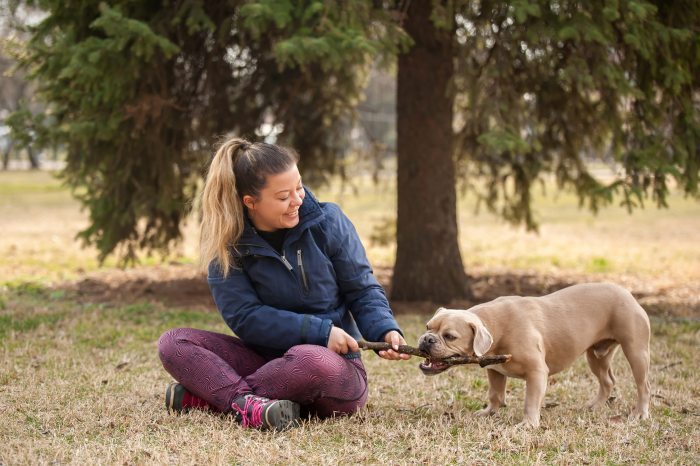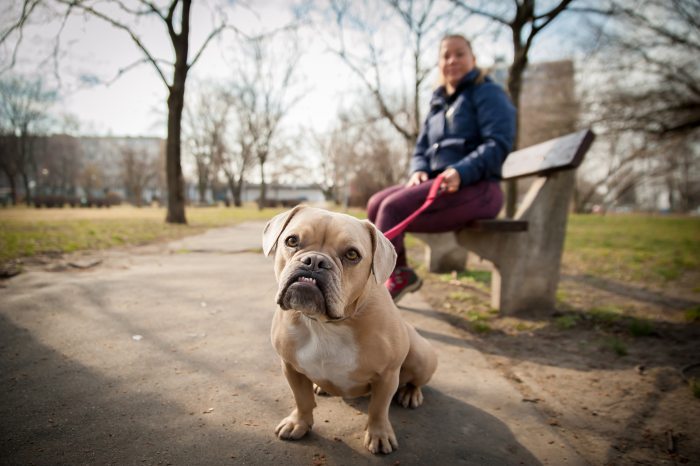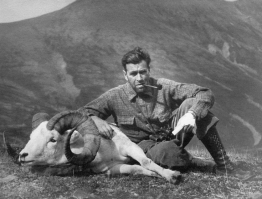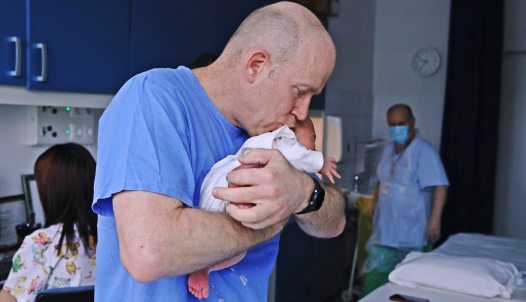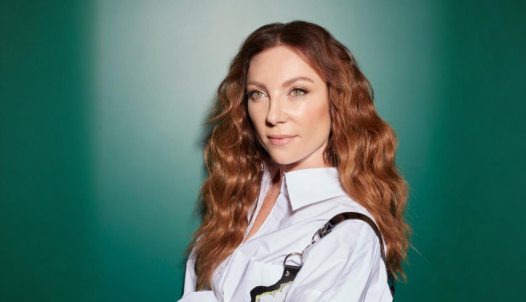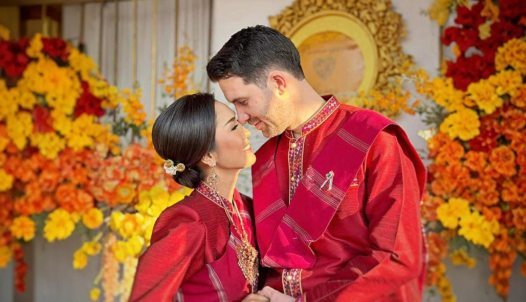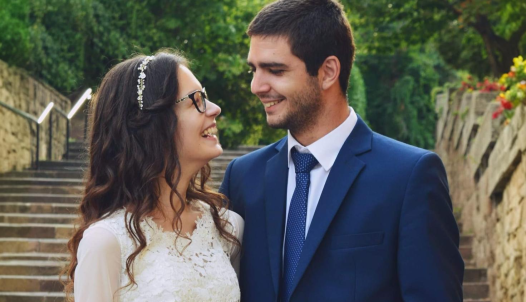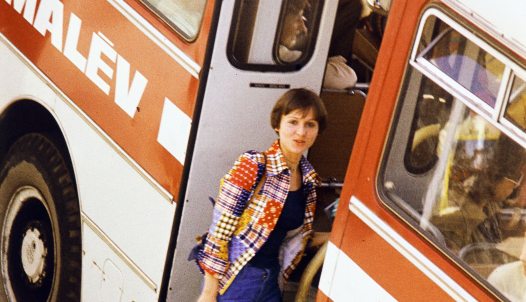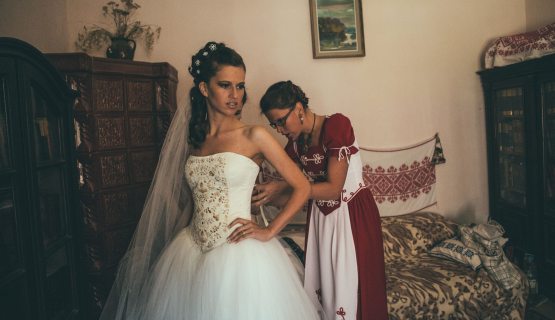"I was standing on a farm at 23 and felt like my life had ended" – Whose dreams really?
Our parents sometimes make huge sacrifices to make their wildest dreams come true for us. And then, in the idyll they created, we may need the same courage to break away from their desires. For some, for example, the freedom of a nomadic life, close to nature means freedom, and for others the hustle and bustle of the big city. Neither generation can avoid making the difficult choice and starting afresh if they want to live the life of their own dreams.
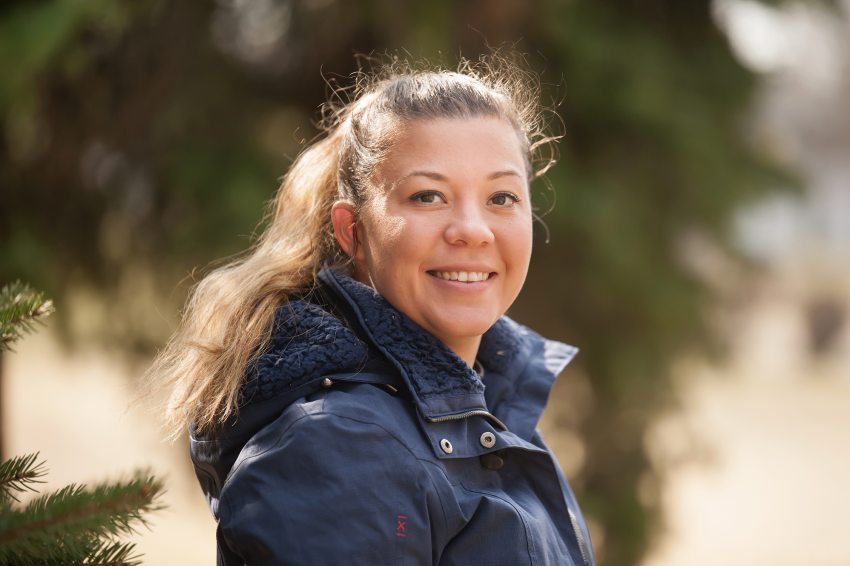
One of our old interviewees recently wrote a letter. The 2012 article was about the idyllic, natural life of a community of a few families in a small village in Zselic, where the first swallows moved 30 years ago, some of them straight from a city block of flats. Almost all of them were driven by the desire to provide a peaceful and natural environment for their children. "The transition was difficult," said one mother, "because we hadn't learned how to live in a village, only our grandparents remembered how to live without electricity, what edible plants we could find in nature, how to pluck the chicken." The letter was written by Anna Bénó-Sápi, the daughter of one of these brave families, who arrived in Visnyeszéplak at the age of four or five and was a young girl at the time of our report.
"I lived like my mother. I cooked, did the washing, cleaned, I didn't go to work, my job was the household. I waited for my husband to come home so I could give him lunch. I thought it would be like this forever," Anna begins her letter.
"A few years later, I was standing on a farm, in a tiny house, the goats were bleating, my little son was crying, and I was crying too. I felt like my life had ended at 23."
"After much thought, when my son was 9 months old, I convinced my husband to move us up to Pest... I loved it from the first minute. For me, the smell of urine, gyros, exhaust fumes, asphalt, and all the different kinds of food on Rákóczi Road was the smell of freedom."
We meet Anna - who already told our photographer that she would become a dog trainer in 2012 – in a park in Kőbánya with her small "colleague" Boris. A two-year-old English bulldog and French bulldog mix. His owner has fulfilled her dream and is indeed working as a dog trainer, counselor, and dog-assisted coach besides raising her two young children. I first ask Anna about the childhood she left behind in Visnyeszéplak.
- One of my first memories is of the strange smell of my mother whitewashing the walls of the house. Four or five families moved to the village at the same time then, and we started the traditional celebrations of Easter, Pentecost, or Christmas together, and a strong community was formed. As a child, I loved the freedom, we were allowed to do anything, and now as a mother, I wonder about this freedom for there were abandoned wells and things like that in the forest... we were in groups of five or six, aged six, seven, eight or nine, we played tag, built treehouses, ate edible plants, and nobody ever got hurt. We were certainly taught responsibility, always being shown what was edible and what wasn't. What I found with my cousins from the city is that it's useless to tell a child not to eat that red berry, but somehow it worked for us.
- Why did this little paradise suddenly become too little for you?
- Actually, it happened gradually.
My grandmother was from Gödöllő, and when we country peasant girls from our Amish-like lives came to visit her, it was as if we had arrived from another planet. For me, it was a fantastic experience to be able to do whatever I felt like doing.
I enjoyed going to the Árkád mall on Örs vezér Square, where you can eat all sorts of things even if it wasn’t me who made them, and it's not like "my dear, you know, the bread has been baked at home, we're not going to the bakery, it's pointless to spend money on that". It also occurred to me that I don't want to be like my mother, who takes care of the house, the animals, and the children and does everything according to the decisions of the head of the family, but like my grandmother, who can make her own decisions. She was the boss in their family, if she said we were going to the amusement park, we went to the amusement park, and it wasn't a topic that was discussed for two weeks, like in our family. Of course, for some people, it works very well, and even now there are some people in Széplak who experiences freedom under the leadership of their husbands because there the tradition is that the man is the leader.
- Is this how quickly the traditional family model was established, or rather reverted? And does this also mean that those who do not adapt to it find themselves in a traditionally judgmental community? Are you being a little bit told off?
- Not a little bit. For me, the first problem with unwritten rules is that not everyone understands them immediately. In a small village like Széplak, everybody knows everything about everybody, 30-40 adults out of 130 or so people, the rest are children, because everybody has four or five children. When I first fell in love, and as the first of my generation in the village to do so, we kissed, the boyfriend's mum came to our house! She told me that because we were in love, she was afraid that my boyfriend would stop playing with her son, and she thought that at 13, the boys playing together would be normal, not us dating. Imagine that level of interference! Or there was a huge scandal that there were abandoned wine cellars in the area, and two 10-year-old boys found out which one had pálinka in it and got drunk.
- So it was really a community upbringing...
- Exactly, we didn't necessarily grow up at home, so that's why everybody knew everything about everybody. I've wanted to go to the city since I was 12, so my mum and dad thought they'd send me to Pécs to an art high school, they thought I'd have a fantastic time. In practice, this meant that I, who had never been on a bus on my own, turned up there.
There were people of all styles, plus me with my tied skirt and braided hair - like an alien.
The others went out to the pub after class, I had to break even with 2500 forints a week, and I had to decide everything on my own. I was terrified, it was a terrible time. My father thought if I stayed a few years it would get better, but I moved back to Széplak against his will. So he disowned me for three months and I moved in with a family I knew. Then my dad reconciled and I became a private student at a high school, but later I went back to Kaposvár, to the Calvinist High school, which was a much gentler environment. I met Misi, who was living in Széplak at the time because he liked the life there. Although he was 12 years older, my parents were happy because "Misi was a nice man". I wanted to go to the city, I did a pedicure course so I could work, but then we moved back to Széplak and rented a house. I really enjoyed those few years, Misi worked, I was at home, baked bread, made jam, and milked goats. We didn't have much money, but I was happy tending to my own house and field. Then the house was sold and we moved out of the village. There was a road two or three kilometers away that you could drive on, but we didn't have a car. Life consisted of how we could get drinking water and food to the house, and how we could give water to the animals, we had to pull it up with buckets and carry it to them. Physically and mentally it was hard with the constant physical work we had to do every day to stay alive. I might add that Misi loved it. He would come home after 8-10 hours of carpentry work and go out to the garden to hoe. It made him happy. But I wanted to leave more and more. My friends went to university or moved away. Then we found out we were expecting a baby, then we got married, because until then we were always kind of indecisive when it came to a deeper wave in our relationship. Ambrus, our son, was in a breech position, so he was born by C-section.
I think the hardest time was when I was there with my wound and our bathing water from the well stank because the dormouse had died in it. It was awful, it triggered the fear in me.
Misi also carried the bathwater home on his back. We were tired of it. And once, when I said, as usual, that we should try to go up to Budapest, Misi said: let's go. We sold the goat, the sheep, and sold off everything and found a flat for rent on Rákóczi road in Budapest. I turned on the tap, and there was water, I turned on the electricity, there was electricity, and there was the internet, as much as you wanted!
- But all this is not yet what you can build a life on...
- We were always able to break even at the end of the month, and we knew that neither Misi nor I could be supported by our parents, and if something happened by chance, God forbid, Misi would fall off the roof... When Ambrus was one year old, we went with him to France to work for a farmer for two or three months. He offered us an attractive sum of money, because we lived in tents and ate cheap food, and we could bring most of it home, so we had some savings. With that money, I was able to realize my dream of going on a dog trainer course. I was happy that Misi supported me in spending our money on this. I went with my grandmother's dog. I started working and then my daughter Manka was born. I had post-natal depression after that, and I had to come out of that, but now I have built up my business and more and more people are coming to me, and I have clients referring me to each other. Now I can work just as much as I can handle with daycare and nursery.
- What's it like to go back to Visnyeszéplak?
- The romantic feelings are always there when we go back with the kids. Typically, my generation didn't stay there. The main aim at the time was to keep the kids in the village and make them want to continue the same way of life, but we find there is not much to stay for. The reason is that the people who live there have bought up everything, and to live there you need land because of the animals. There is not much land left for the younger generation. Of course, there are some who have done a tractor driver's course, bought a tractor, and are now the village tractor driver, but as a woman, there are not many opportunities.
- What did you bring with you from Széplak?
- If you know that they can't support you, it gives you a sense of confidence because you have to do it yourself, you're on your own. It may not be tomorrow, it may not be the day after tomorrow, but in a few years, you will get it done. That has helped me a lot in my business. The other is that I'm the girl next door who asks how you are and notices when you're tired.
I also became a sort of modern-day lady companion alongside dog training. It meant a lot that we were in direct contact with everyone in the village, we called everyone by their first names, we could ask if we needed to, and if we were rebuked, we accepted.
Everyone had an opportunity to establish their own position, even as kids. In the Calvinist High School, I consciously wanted to be the good guy in the class whom you could tell everything. Now that I'm also a dog-assisted coach, I'm getting some really tough stories.
- This means that you keep your personality in the background….
- Exactly. I love people and dogs very much, I love to listen to them without judgment, to listen to them. That's why I have to see a psychologist because if they pour it on you from one side, you have to put it down on the other. If my hand are full of burdens, I can’t handle any more. Any job where you use your soul is very exhausting in the long run. That's why I pay conscious attention to myself because that requires me to be well. Animals are masters of non-verbal communication, they reflect what's going on inside us before we can articulate it ourselves.
- You ended your letter to me with the words, "That would be me." Does that mean that by now you know who you are?
- Sometimes it's like there's a part of me that knows me. Basically, I understand myself, but now my task is to figure out how to trigger a change in myself.
- If someone knows then that’s you that your desires, and choices, your life will determine the future of your children. Is that a burden?
- It is terribly difficult! When I see my city kids growing up in the city nursery school, surrounded by city toys and stories, my old self, the one from Visnyeszéplak, appears. My kids will never be country kids.
- But those who might eat the red berry, which they shouldn't...
- Yes, the one who needs to be told not to go near the electric fence, or watch out, there's a pit. What I knew, Ambrus and Manka will never know, but they will not be afraid of unknown dangers in the city. I want my children to be free. And then they will tell me if I succeeded.
